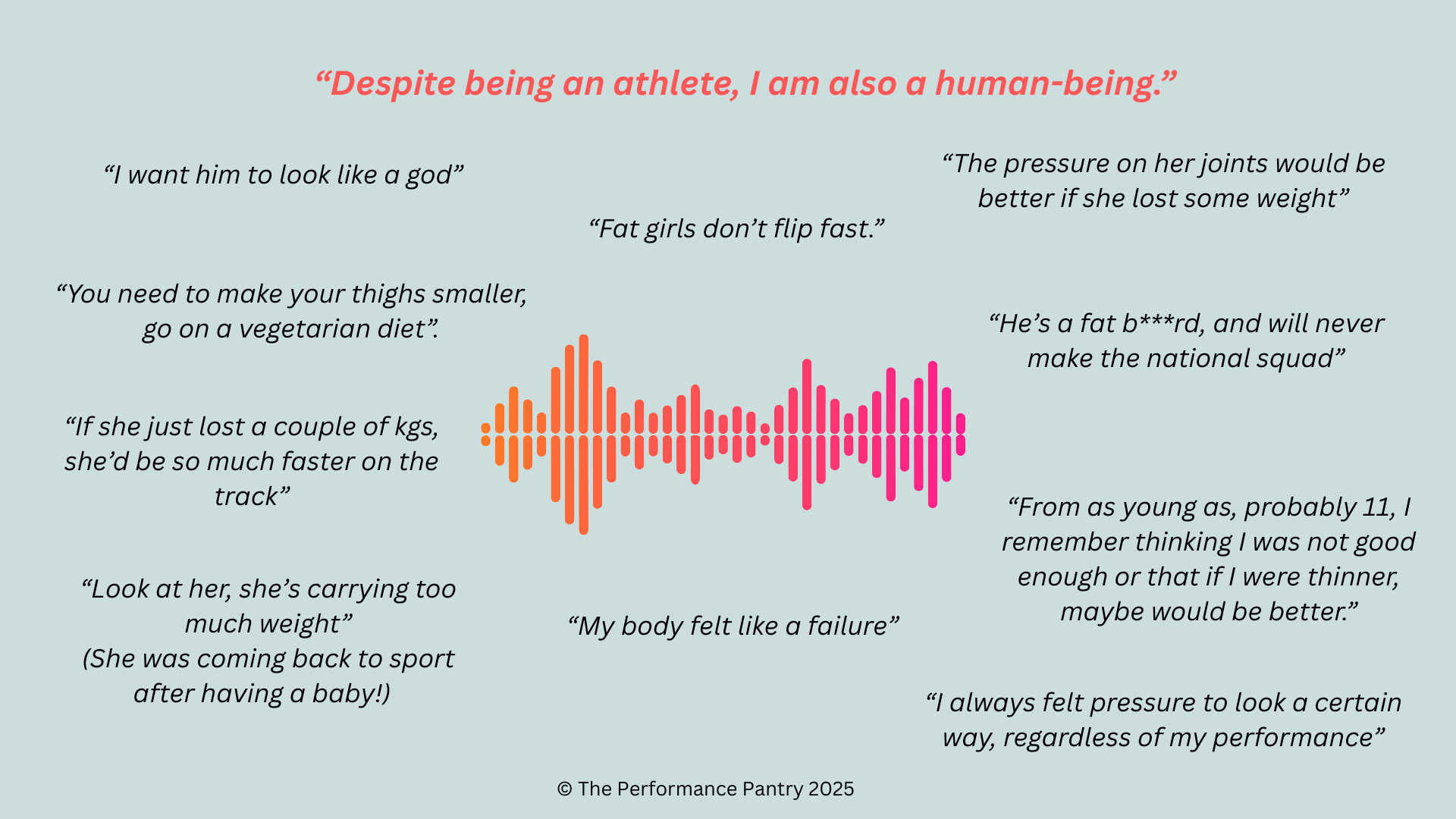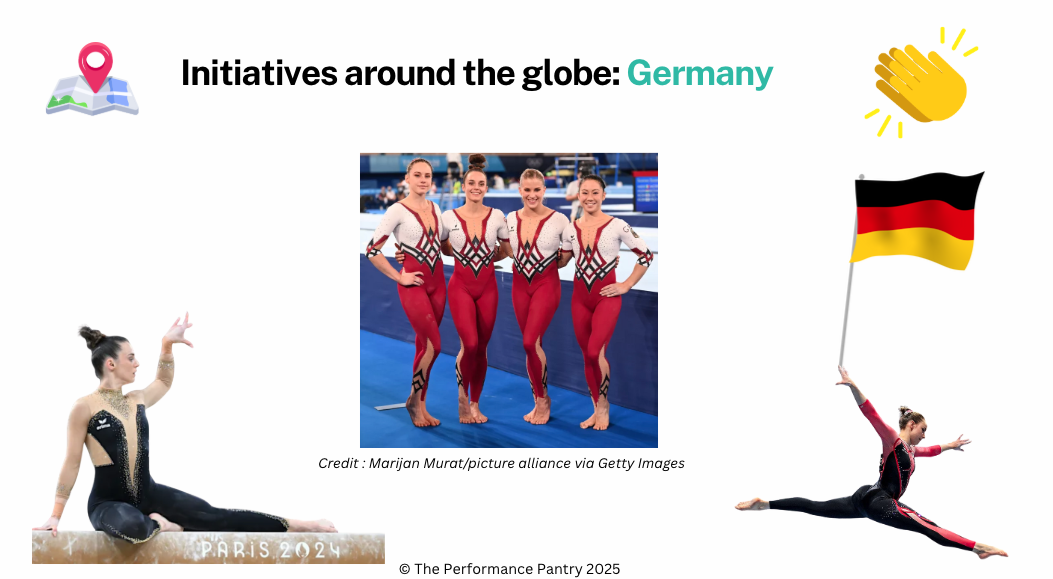5 MINUTE READ
*This post contains discussion around eating, bodies and real life stores which may be triggering. Also, the term “athlete” here is inclusive of someone who trains, either recreationally, for a club or team or at an elite level.
What is diet culture?
Diet culture is the set of social beliefs and values about health and weight and bodies that connects weight to worth. It teaches that certain body types are more desirable, that some foods are “good” and others are “bad,” and that restricting or disciplining oneself around eating is virtuous. In society, this often shows up through constant weight-loss messaging, glorification of “clean eating,” and the idea that self-worth is tied to body size. It affects everyone, regardless of age, gender, ethnicity but it consistently marginalises people who do not “fit the norms” or “ideals”.
Diet culture
Endorses body ideals and health ideals
Attaches stereotypes to body size
Promotes and normalises disordered eating
Thrives thanks to the multi-billion industries which benefit
What diet culture looks like in sport
Diet culture in sport often masquerades as “discipline” or “dedication,” but it can undermine both athlete well-being and performance.
Focus on thinness/leanness: In many sports, like gymnastics, dance, running, swimming, skating, triathlon, cycling, rowing, cricket, horse riding, tennis, climbing, fencing… the list goes on, there’s an underlying belief that lighter, or leaner = better performance.
This is simply not true - read on for more info about this!
Body type stereotype - Stereotypes exclude and discourage athletes who don’t fit the “look” for their chosen sport or playing position. It pushes people towards intentional weight manipulation of some form, to conform to a perceived “ideal” and overlooks performance benefits of diverse body shapes and builds. Some examples:
Distance running, triathlon, road cycling etc. → thin, low body fat; the stereotype that lighter means faster.
Swimming → long-limbed, broad shoulders, “streamlined” body.
Female Ballet dancers / gymnasts → very lean, petite, light body; often framed as “ideal” for aesthetics and lift work.
Rowing / rugby → tall, broad, muscular but low body fat; seen as stronger and more powerful.
CrossFit / functional fitness → muscular, low body fat, visibly “shredded.”
Good vs. bad foods: Athletes absorb rules about what’s “clean” even “healthy” often tied to morality or discipline, e.g.
Sugar is “bad”, white bread is “bad”, quinoa and brown rice are “good”, “white rice is bad” etc.
Normalisation of disordered behaviours: Like fasting or skipping meals, “shredding,” detoxing, counting calories, tracking macros, or over concern about body fat % are seen as normal preparation strategies.
These behaviours are problematic and do not help performance thrive, contrary to what people may believe - they stifle performance!
When the focus shifts to weight control, it takes the spotlight off performance. Progress becomes tied to losing weight instead of the real drivers of success - improvements in strength, fitness, power, skill, and performance nutrition.
Body Composition testing, e.g. skin folds, DXA, bioelectrical impedance, 3D body scanners etc., when the results get reinforced by diet culture values: thinness = better, lighter = faster, restriction = dedication. It can:
Be judged as an athlete’s discipline, worth, or readiness to compete.
Become tied to “success” rather than being one small data point among many.
Prompt restrictive behaviours or anxiety around food and weight.
Encourage unhealthy comparison between athletes.
These are some examples of conversations we have come across in our work with everyday folk, high performance athletes, and staff. They are not acceptable, nor are the remarks grounded in anything else except appearance based judgement, and diet culture.
Negative impacts of diet culture in sport
Physical health
Under-fuelling → low energy availability, REDs (Relative Energy Deficiency in Sport), hormonal disruption, injuries, slower recovery.
Increased risk of stress fractures, immune suppression, fatigue, loss of periods, altered digestion
Not reaching performance goals or outcomes, frustration leading to → attitudes of “not trying hard enough” to change weight or shape
Mental health
Cognitive impacts and effects on concentration and focus.
Higher risk of problematic, disordered eating and eating disorders.
Anxiety, guilt, or shame around food choices.
Isolation and loss of spontaneity around social situations with food.
Obsession with weight, appearance or food, that overshadows joy of sport and often lasts a lifetime.
Performance
Short-term gains (from weight loss or restriction) often lead to long-term declines: slower times, reduced strength, impaired focus
Usually the exact opposite of what someone is setting out to achieve
Loss of longevity in sport due to burnout or injury.
Culture of silence
Athletes may feel they can’t speak up if struggling, as restriction or body weight change is often rewarded or praised by coaches, peers, and media.
“You’re looking good, have you lost weight?” or “looking like a runner” or “Tracking well, skinfolds are X mm” - in regards to selection process.
Financial costs
Spending money on supplements, meal plans or gimmicks associated with trying to reach or obtain an “ideal body” or “ripped muscles” etc.
How diet culture gets reinforced in sport
Language and communication around bodies: Coaches and Support Staff linking size with performance e.g. “needing to lose weight to get faster”, Coaches and staff own attitudes, views and history around nutrition, like, what you “should or shouldn’t be eating”.
Coaches using “model” or example athletes based on a body size trait that then gives an identity to an athlete, e.g. “the strong one” or “flexible one”
Environments: Images and pictures of athletes used in marketing, online, posters in buildings, gyms or dance studios. Often these images are of the athletes with body currency or the ones who more closely fit the societal norms of their sport or society and the thin or athletic ideal body stereotype.
Such images often do more harm than good, as messages received can be perceived as “I need to look like X to perform well, or get chosen/selected” or even just to feel accepted or like they belong/fit in.
Teammates: Peer comparisons, “joking” about body shape, skin folds, or meal or food choices at team dining events.
Media & sponsorships: Highlighting athlete physiques, pushing “clean eating” or supplement-heavy approaches.
Rules & structure of sport: Weight categories, weigh-ins, costume and uniform requirements.
It’s so good to see some sporting codes finally adjusting their uniform rules to allow more flexibility and athlete empowerment in what they want to wear to feel confident performing in, e.g. Volleyball and Gymnastics.
Check out the German Women’s Artistic Gymnastics team unitards from Tokyo 2020 and Paris 2024:
This image is a screenshot taken from a workshop we did recently with Gymnastics NZ discussing body image (2025).
WHAT’S AN Alternative approach:
There is another way to approach food and eating for performance, and life! Replacing diet culture with a positive Performance Focused Nutrition Culture. It can help athletes (who are also people!) thrive longer, be healthier, and resilient.
Framing food as fuel, recovery, and enjoyment, not as a moral test.
Integrating components of Intuitive Eating, for Athletes (future blog post!)
Promoting body diversity within sport and focusing on function over form.
Coaches and support staff modelling balanced food attitudes.
Recognising that health and performance are supported by adequate fuelling, not restriction.
Reframing language and feedback away from weight or appearance; instead focused on function, effort, skill, confidence, strength etc.
Using body lead measures responsibly and ethically, with emphasis on function and fuelling, not “fixing” a body and that optimal performance occurs across a range of body compositions, not a single “ideal.”
Recognising and talking about diet culture in sport helps us see its impact, understand our role within it, and advocate for a healthier, safer, and more sustainable sporting environment.
A POSITIVE FUELLIng culture helps athletes thrive longer,BE healthier, and STRONGER.
If you’re interested in another approach to your nutrition for training or Performance, we’d love to hear from you!
This post was written by Becky Jones, Sports Dietitian, and peer reviewed by Dr Katie Schofield, NZ Registered Nutritionist, PhD Low Energy Availability, previous elite NZ cyclist and awesome human being.





